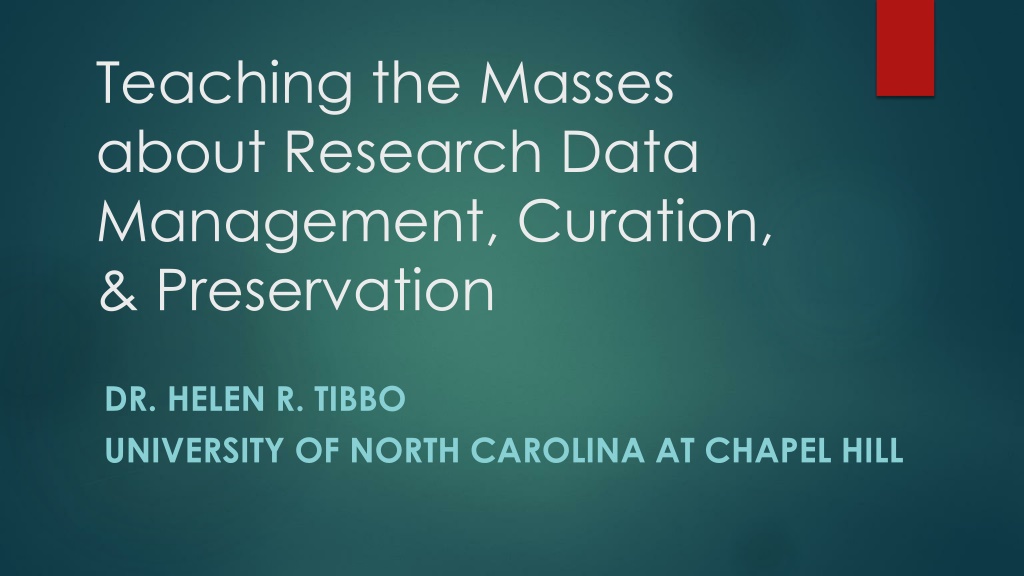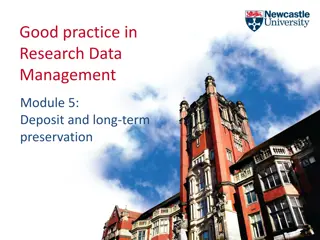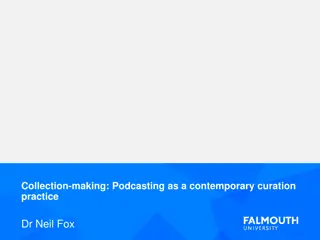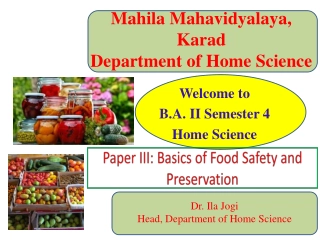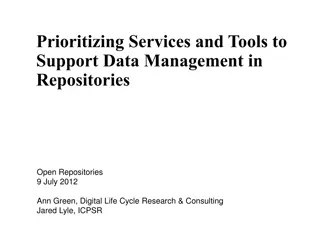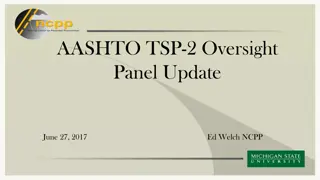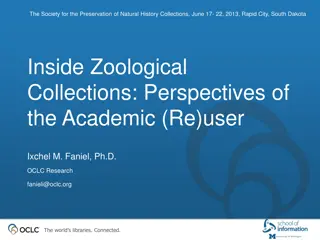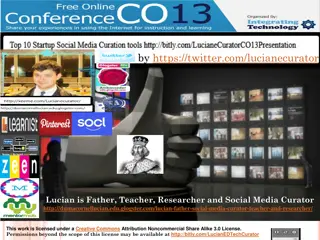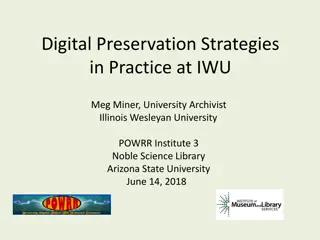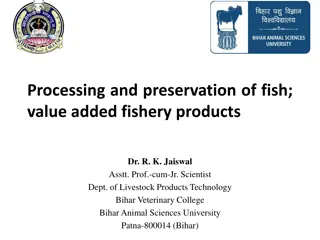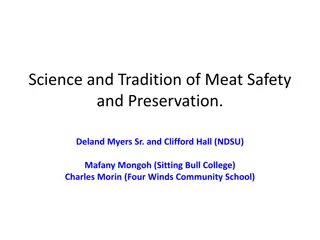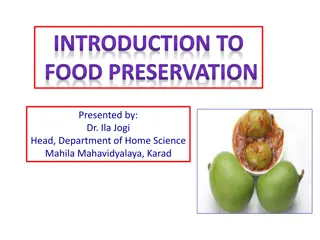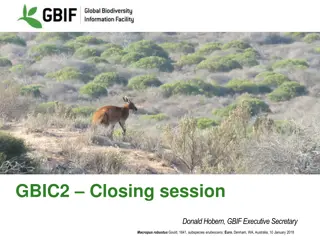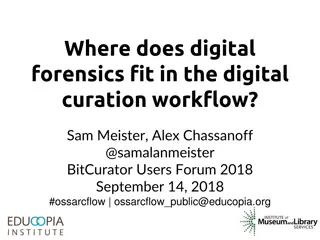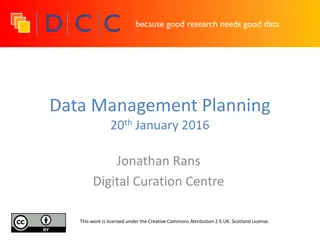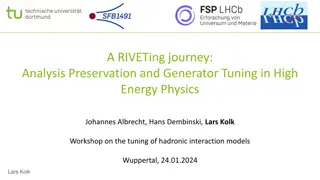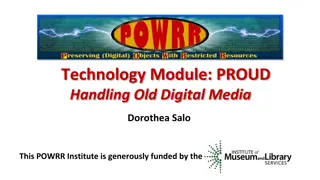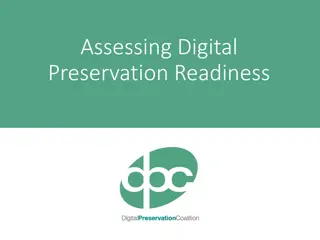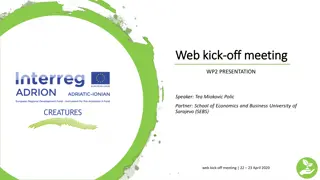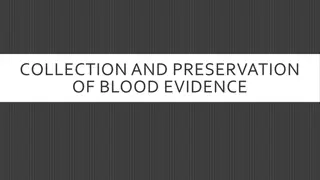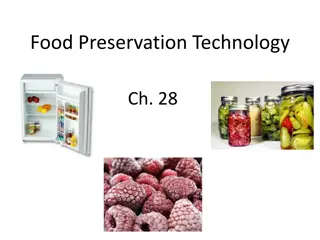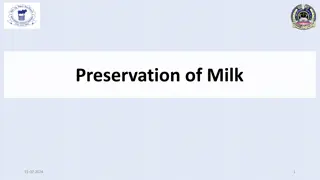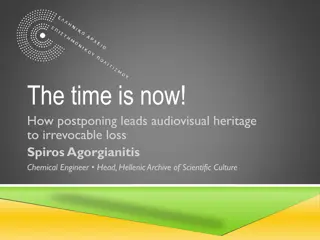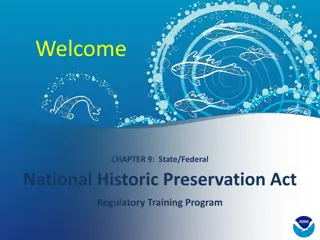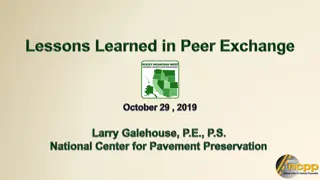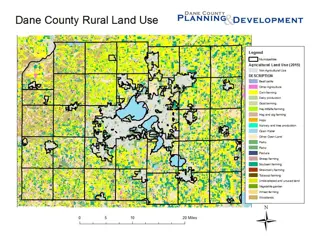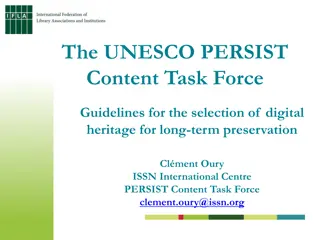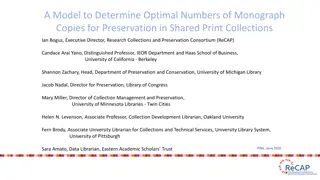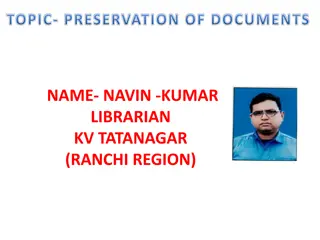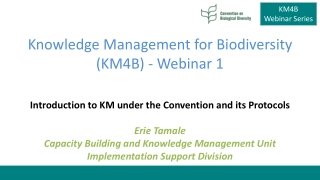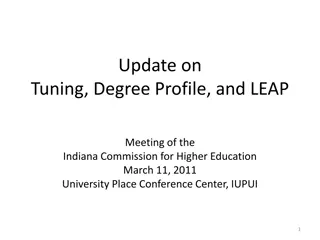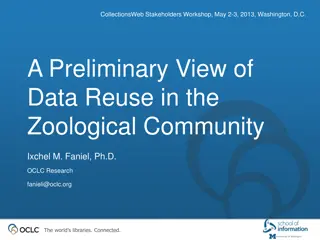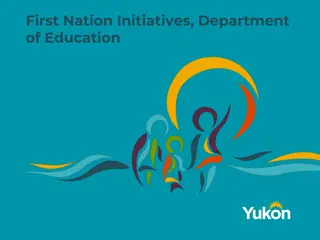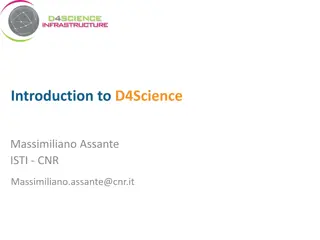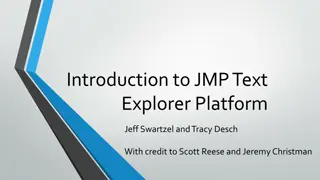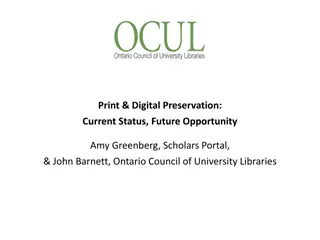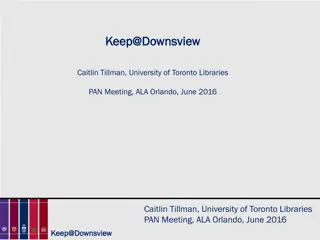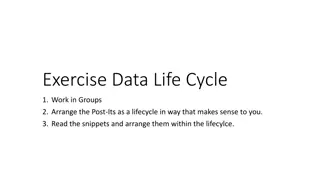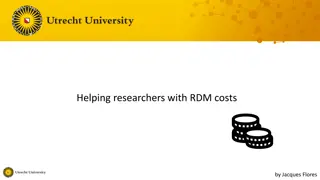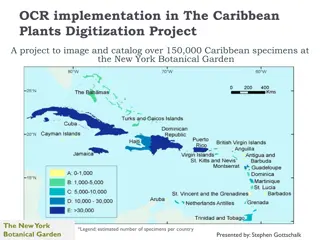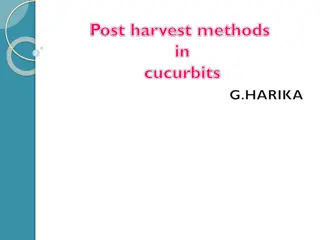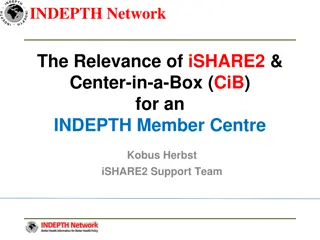Data Management, Curation, and Preservation Education Initiatives
Dr. Helen R. Tibbo from the University of North Carolina at Chapel Hill leads efforts in teaching research data management, curation, and preservation. The CRADLE project and MOOCs address the need for educating data scientists, librarians, archivists, and students on handling research data effectively. These initiatives cater to a wide audience from various disciplines, emphasizing the importance of proper data management practices.
Download Presentation

Please find below an Image/Link to download the presentation.
The content on the website is provided AS IS for your information and personal use only. It may not be sold, licensed, or shared on other websites without obtaining consent from the author. Download presentation by click this link. If you encounter any issues during the download, it is possible that the publisher has removed the file from their server.
E N D
Presentation Transcript
Teaching the Masses about Research Data Management, Curation, & Preservation DR. HELEN R. TIBBO UNIVERSITY OF NORTH CAROLINA AT CHAPEL HILL
data scientists [including] librarians [and] archivists have the responsibility to design and implement education and outreach programs that make the benefits of data collections and digital information science available to the broadest possible range of researchers, educators, students, and the general public. National Science Board, 2005
CRADLE Curating Research Assets and Data Using Lifecycle Education CRADLE http://cradle.web.unc.edu/ is a collaborative effort of the School of Information and Library Science http://sils.unc.edu, the H. W. Odum Institute for Research in Social Science http://www.odum.unc.edu, and the University Libraries http://library.unc.edu/ at the University of North Carolina at Chapel Hill. The CRADLE project was sponsored by the Institute of Museum and Library Services (IMLS), under award #RE-06-13- 0052-13. CRADLE ran from 2013-2017.
CRADLE & MOOC Audiences Librarians and archivists managing research data and working with research data creators; Information and library science master s and doctoral students who will work as managers of research data or conduct data curation research and provide education to future data managers, and Researchers in the social, health, and physical sciences who need to write data management plans and more generally, learn how to manage their own data before it reaches a repository.
https://www.coursera.org/learn/data- management
MOOCs contents Understanding Research Data Data Management Planning Working with Data Sharing Data Archiving Data
Reviews It's a great course!! Great course! very good course! (3 reviews) This is a an important topic and more scientists (and students in the sciences) should learn about this but the quizzes are not great as a learning aid and my motivation is running through lows. I found this to be an excellent course. I have been teaching myself about data management for about the last two years as part of my work. I have read many documents, taken one course and have been to a couple of workshops. But I still felt that I was missing a lot of information - especially if I am to help researchers with their DMPs. Finally, thanks to this course, I have the more in depth information that I need. The topics covered, and the way they were covered also helped me to paint a better picture in my mind of the "whole process of data management" - an not just disjointed information which I felt I had. It's very useful. I recommend this course. A very informative course. i learnt a lot.
https://www.coursera.org/learn/data- management
Post Masters Degree in Data Curation https://sils.unc.edu/programs/post-masters- certificates The Post-Master s Certificate (PMC) in Data Curation is a degree program designed for professionals working in libraries, archives, museums, government agencies, and businesses who want to take the lead in determining their organization s policies and standards for digital collections and data management. 10 classes for a total of 30 credits. All online except for 2.5 weeks in May. Online classes are all asynchronous.
Professional Science Masters Degree in Digital Curation Launching January 2018 31 credits Entirely online; asynchronous Designed for working professionals in any field. Applications open August 2017 GRE required 3 cohorts per year August, January, May
